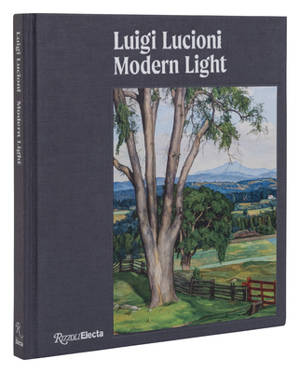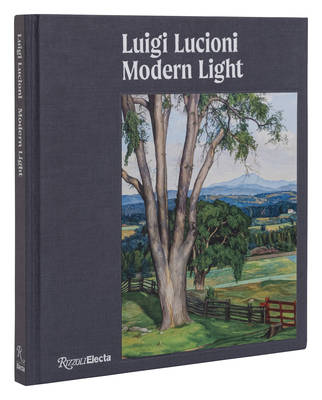
Door een staking bij bpost kan je online bestelling op dit moment iets langer onderweg zijn dan voorzien. Dringend iets nodig? Onze winkels ontvangen jou met open armen!
- Afhalen na 1 uur in een winkel met voorraad
- Gratis thuislevering in België vanaf € 30
- Ruim aanbod met 7 miljoen producten
Door een staking bij bpost kan je online bestelling op dit moment iets langer onderweg zijn dan voorzien. Dringend iets nodig? Onze winkels ontvangen jou met open armen!
- Afhalen na 1 uur in een winkel met voorraad
- Gratis thuislevering in België vanaf € 30
- Ruim aanbod met 7 miljoen producten
Zoeken
Omschrijving
A revelatory look at this Italian-American modernist painter of highly realistic and romanticized still lifes, landscapes, and portraits drawn from his life in the gay New York scene and rural Vermont. This first comprehensive survey of the life and work of Luigi Lucioni (1900-1988) places him in the context of fellow Regionalist painters Grant Wood, Charles Sheeler, and Maxfield Parrish. Lucioni is known for meticulously rendered still lifes, landscapes, and arresting portraits drawn from his close-knit circle of queer New York artists and cultural figures, including Paul Cadmus, Jared French, George Platt Lynes, and Lincoln Kirstein. In the early 1930s, Lucioni discovered Vermont, whose landscapes reminded him of northern Italy. It was there that he met Electra Havemeyer Webb, who was to become his single most important patron. For more than 50 years, the New York City-based artist spent every summer painting landscapes of trees, barns, and buildings in Vermont with sharply observed realism and a cool, precise style. Key scholars examine Lucioni's oeuvre, materials, techniques, and his role in American modernism.
Specificaties
Betrokkenen
- Auteur(s):
- Uitgeverij:
Inhoud
- Aantal bladzijden:
- 160
- Taal:
- Engels
Eigenschappen
- Productcode (EAN):
- 9780847869916
- Verschijningsdatum:
- 3/05/2022
- Uitvoering:
- Hardcover
- Formaat:
- Genaaid
- Afmetingen:
- 244 mm x 269 mm
- Gewicht:
- 1247 g

Alleen bij Standaard Boekhandel
+ 111 punten op je klantenkaart van Standaard Boekhandel
Beoordelingen
We publiceren alleen reviews die voldoen aan de voorwaarden voor reviews. Bekijk onze voorwaarden voor reviews.











